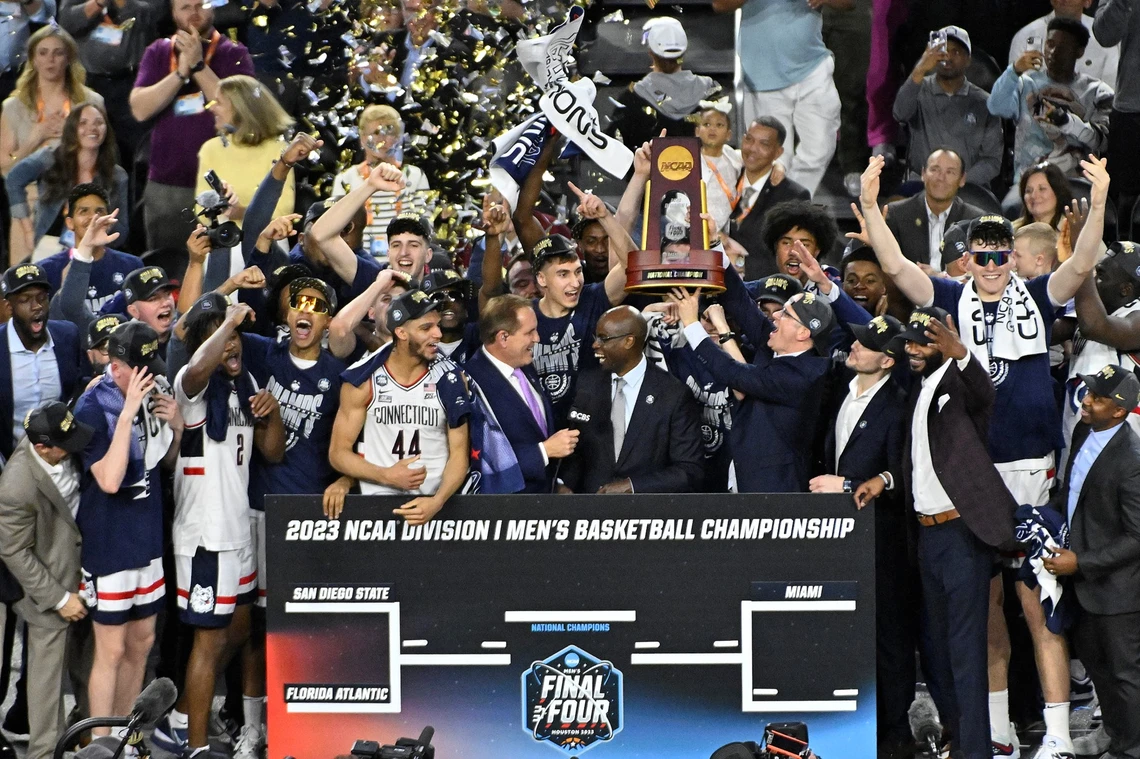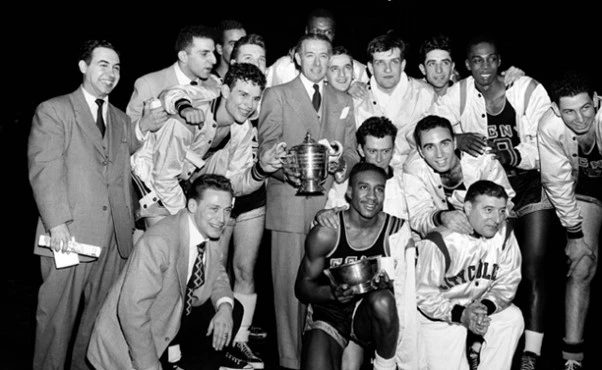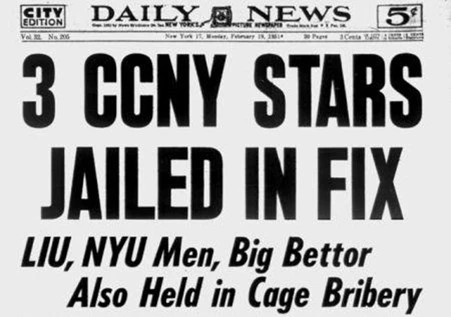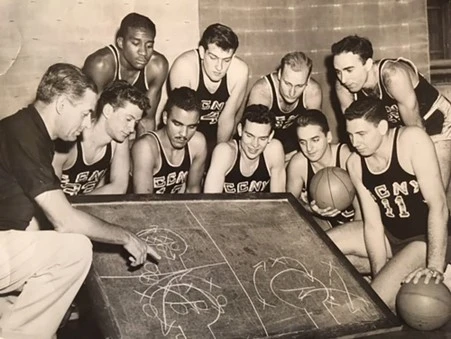
Biggest Sports Betting Scandals in US History: CCNY Point-Shaving (1951)
College basketball is one of the most famous sports in America, with the period of March Madness captivating the nation’s eye as 68 teams compete to win the NCAA Championship.

But, due to its sheer popularity, it means that it has seen its fair share of betting-related transgressions. A dark time for the sport was the CCNY Point-Shaving Scandal of 1951, which rocked the world of college basketball and sent shockwaves through the sports community.
A Tale of Betrayal
The City College of New York (CCNY) was known as a light at the end of the tunnel due to the opportunities and hope it promised for many underprivileged students, but in 1951, it became the epicenter of a scandal that tarnished the institution's reputation. The CCNY Point-Shaving Scandal involved several members of the CCNY basketball roster who had decided to join the world of corruption, ultimately betraying their school and the sport they loved.
The Setup
The scandal was focused on point-shaving, a practice where players purposefully alter the final score of a game to ensure that the margin of victory falls within a particular range, that has been decided by gamblers. In 1951, several CCNY players, including the team’s staring point guard Ed Roman, were approached by fixers and offered bribes to influence the outcome of matches. The fixers had ties to organized crime, and their influence extended way beyond in the sport, and into other entities.
Who Was Involved?

Ed Roman
A prominent figure in the scandal, Ed Roman was the star point guard for CCNY. Known for his exceptional talent on the court, Roman's involvement in the point-shaving scheme shocked fans and fellow players alike. He succumbed to the lure of financial gain and played a central role in manipulating game outcomes.
Floyd Layne
The whistleblower in this scandal, Floyd Layne, was a player on the CCNY team who decided to come forward and reveal the extent of corruption. His brave decision exposed the entire operation, leading to prosecutions.
Salvatore Sollazzo
Sollazzo was one of the fixers who approached the players and offered bribes to change the outcome of game scores. He had ties to organized crime and was a key figure in the scheme His influence extended beyond just CCNY, reaching other colleges embroiled in the scandal.
Henry Poppe
Another fixer who played a significant role in the point-shaving scheme, Poppe operated behind the scenes and aided to coordinate the altering of game outcomes.
The CCNY Point-Shaving Scandal highlighted the vulnerability of student-athletes who were often financially strained and vulnerable to manipulation. The fixers took advantage of these vulnerabilities, offering money and other incentives in exchange to take part in the scheme. The players, driven by a desire for financial security, found themselves within a web of crime and illegalities.
As the scandal unraveled, it became clear that the perpetrators were not limited to a few rogue players. A network of fixers, gamblers, and those with ties to organized crime had their hands in the operation, spanning across numerous colleges and teams. The scandal exposed the seedy underbelly of sports gambling and its influence on college basketball during that period of time.
The Fallout

The point-shaving scheme began to come to light when Floyd Layne, decided to reveal the illegalities to the authorities. His confession of the scandal set off a chain of events that led to investigations, arrests, and the eventual exposure of the operation. CCNY, and 29 players from seven different colleges were deemed to be involved in the scandal, revealing the extent of corruption within college basketball during that time period.
Legal Repercussions
In the aftermath of the CCNY Point-Shaving Scandal, many players, fixers, and gamblers were prosecuted. Ed Roman and other CCNY players were among those who faced legal repercussions for their role in the operation. The scandal also resulted in lengthy suspensions for many of the implicated players and further decreased the public's trust in college sports going forwards.
Impact on College Basketball
The CCNY scandal had a negative impact on college basketball. It led to the increased scrutiny of the sport's ethics and integrity, which forced universities and colleges to implement strict anti-gambling policies for their athletes enrolled on their course.

The scandal also sparked discussions about the pressures faced by student-athletes and the need for financial support to prevent similar incidents to the 1951 scandal in the future.
Outcome
The CCNY Point-Shaving Scandal of 1951 stands as an important reminder of how gambling and corruption can impact even the most revered institutions. It serves as a testament to the resilience of college sports and the determination to ensure that such scandals are not repeated, and it has now gone on to become one of the most coveted sports in the United States.

Author
Content Editor





